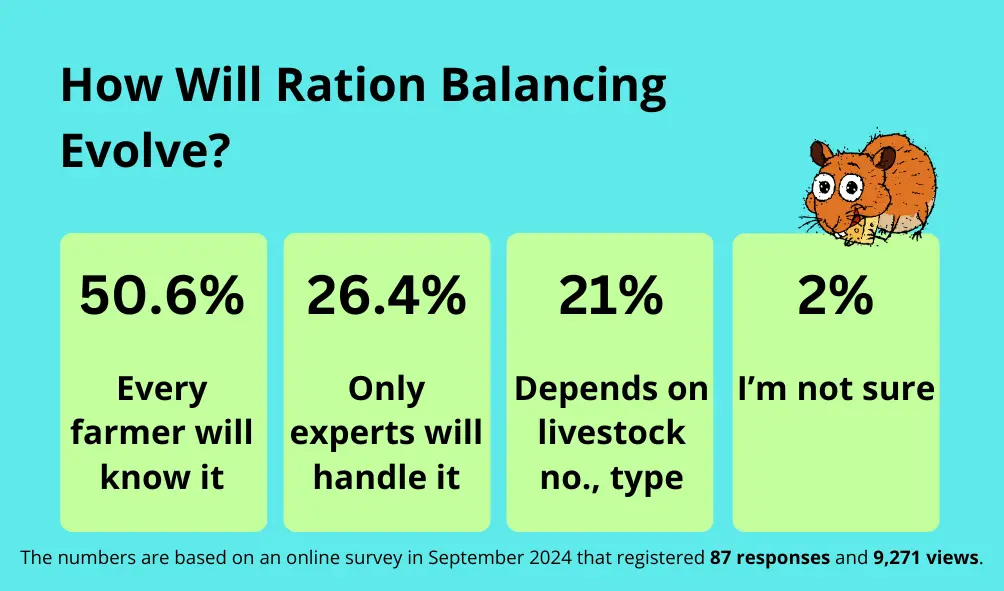Ration balancing plays a crucial role in ensuring animals receive the right nutrients for optimal health and productivity. As technology and methods evolve, we wanted to understand how the future of this skill is perceived by feed formulators.
We posed the question: Will ration balancing become so complex that only experts can handle it, or will it remain fundamental knowledge for every livestock owner?

A majority of respondents (50.6%) are confident that in the future, all farmers will be proficient in ration balancing. This optimism likely reflects the growing availability of user-friendly tools that help farmers make precise nutritional decisions without needing extensive technical expertise. These software solutions are increasingly tailored for everyday use, empowering livestock owners with resources to create effective feed plans.
However, 26.4% believe that ration balancing will eventually fall under the domain of specialists. As formulation techniques become more sophisticated, the challenge of balancing nutrients might demand greater expertise, especially with the introduction of more complex algorithms, advanced animal science research, and a broader range of feed components. For those without specialized knowledge, it may become harder to stay up-to-date with the demands of this evolving field.
Meanwhile, 21% think the future of ration balancing will vary based on the type and number of livestock being managed. Different animals have different nutritional needs—for instance, feeding dairy cows requires different considerations than feeding poultry or swine. For some livestock owners, deep expertise may be essential, while others may continue relying on basic knowledge, depending on their operations’ size and scope.
Finally, a small percentage (2%) remain uncertain about the future of ration balancing, reflecting the unpredictability of agricultural technology advancements.
The Future of Ration Balancing
Looking ahead, it’s clear that technological innovations will shape how farmers handle feed formulation. Platforms like HYBRIMIN are already providing flexible solutions that cater to both novice farmers and experienced experts.
Ultimately, whether ration balancing remains a widespread skill or becomes a specialized domain will largely depend on the accessibility of the feed formulation technologies. As tools become easier to use and more intuitive, the line between expert and everyday user may continue to blur.
 Croatian
Croatian Danish
Danish French
French German
German Greek
Greek Polish
Polish Portuguese
Portuguese Romanian
Romanian Russian
Russian Spanish
Spanish Turkish
Turkish